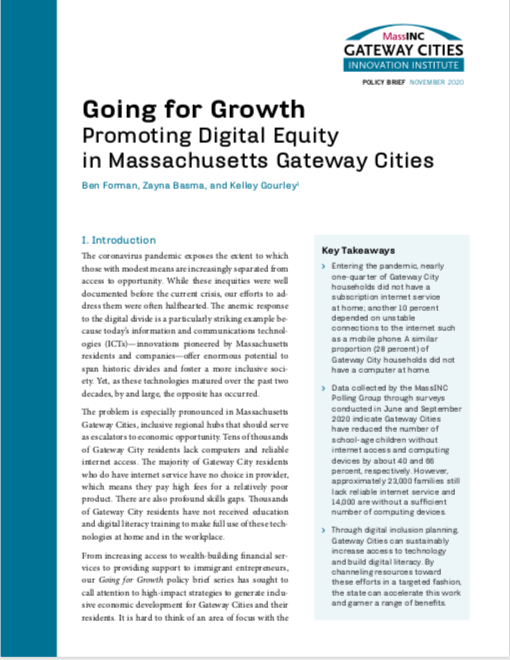This policy brief explores how efforts to increase digital inclusion can yield large benefits for Gateway Cities, their residents, and similar cities.
The paper looks at how COVID-19 has exposed the geography of the digital divide in Massachusetts: namely, its deep impact in Gateway Cities. Entering the pandemic, nearly one-quarter of Gateway City households did not have a subscription internet service at home. An even larger proportion (28 percent) of Gateway City households did not have a computer at home. Efforts to connect families for remote learning have led to large increases in technology access.
With this investment in mind, the paper outlines five key areas where digital inclusion could improve social and economic outcomes in Massachusetts:
- Healthcare
- Workforce development
- Civic participation
- Education
- Economic development
The brief presents examples of how targeted information and communication technology resources have been used to reduce inequality during the pandemic.
Informed by these examples and a review of the existing literature on digital equity, the authors provide recommendations for state and local policymakers.
This report is the sixth installment in MassINC’s Going for Growth series, which explores policy solutions to spur reinvestment and renewal in the state’s regional cities.
